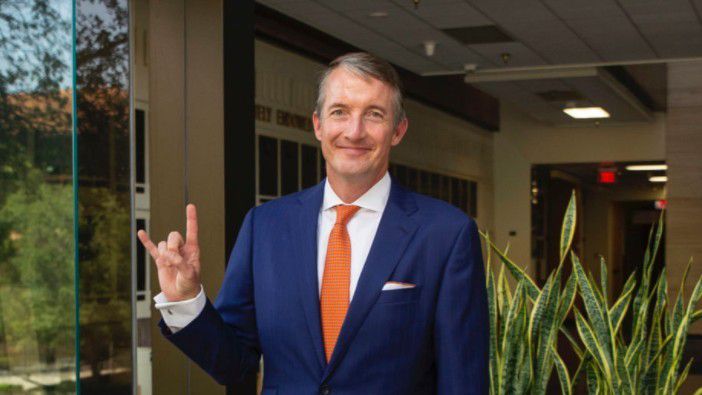AUSTIN, Texas – The University of Texas System Board of Regents on Wednesday voted to make it official, and the University of Texas at Austin has a new president.
Dr. Jay Hartzell, who had been serving as interim president at the university since April, was voted president unanimously after being named the sole finalist for the job in August.
Hartzell replaces Greg Fenves, who stepped down in June to become the president of Emory University.
“In the short time Jay has been interim president, he has led UT Austin with a steady hand and an eye on the future,” Board Chairman Kevin P. Eltife said in a statement released by UT. “Jay continues to demonstrate that he is a leader who can manage enormous challenges and still maintain a focus on elevating the academic, research and clinical missions of a world-class institution.”
According to the university, Hartzell has spent the bulk of the past 25 years at UT, first as a graduate student, then as a professor, and most recently as an academic leader. Prior to being named interim president, he served as dean of the McCombs School of Business.
LINK: Dr. Jay Hartzell's Statement on Being Appointed President of the University of Texas at Austin
“Jay has been a student, accomplished professor, and outstanding academic administrator at UT Austin. He knows UT and Texas well and has demonstrated that he has the ability to lead the university in the most difficult of times,” UT System Chancellor James B. Milliken said. “I am delighted with the Regents’ vote today.”
Hartzell's appointment comes at a difficult time, as UT navigates the challenges of the coronavirus pandemic. In July he issued a statement concerning the death of a member of the university’s custodial staff:
“This is a heartbreaking moment for Longhorn Nation. We have weathered the pandemic for months, but now, it has become personal in a whole new way. As we manage our grief, it is my hope that we can pull together, unite, and redouble our commitment to health, safety and combating this disease on campus and within our communities,” wrote Hartzell.



